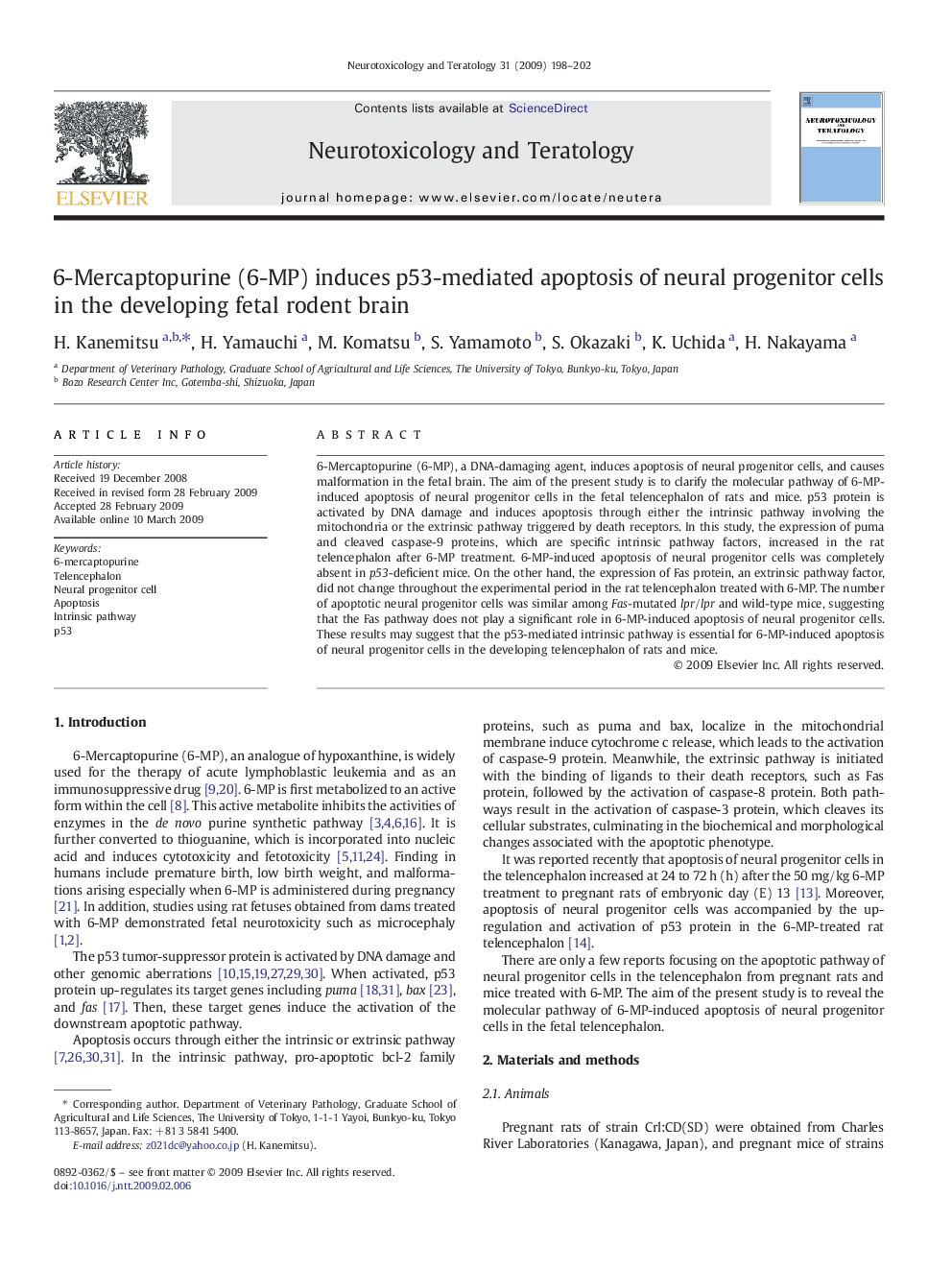| Article ID | Journal | Published Year | Pages | File Type |
|---|---|---|---|---|
| 2591972 | Neurotoxicology and Teratology | 2009 | 5 Pages |
Abstract
6-Mercaptopurine (6-MP), a DNA-damaging agent, induces apoptosis of neural progenitor cells, and causes malformation in the fetal brain. The aim of the present study is to clarify the molecular pathway of 6-MP-induced apoptosis of neural progenitor cells in the fetal telencephalon of rats and mice. p53 protein is activated by DNA damage and induces apoptosis through either the intrinsic pathway involving the mitochondria or the extrinsic pathway triggered by death receptors. In this study, the expression of puma and cleaved caspase-9 proteins, which are specific intrinsic pathway factors, increased in the rat telencephalon after 6-MP treatment. 6-MP-induced apoptosis of neural progenitor cells was completely absent in p53-deficient mice. On the other hand, the expression of Fas protein, an extrinsic pathway factor, did not change throughout the experimental period in the rat telencephalon treated with 6-MP. The number of apoptotic neural progenitor cells was similar among Fas-mutated lpr/lpr and wild-type mice, suggesting that the Fas pathway does not play a significant role in 6-MP-induced apoptosis of neural progenitor cells. These results may suggest that the p53-mediated intrinsic pathway is essential for 6-MP-induced apoptosis of neural progenitor cells in the developing telencephalon of rats and mice.
Related Topics
Life Sciences
Environmental Science
Health, Toxicology and Mutagenesis
Authors
H. Kanemitsu, H. Yamauchi, M. Komatsu, S. Yamamoto, S. Okazaki, K. Uchida, H. Nakayama,
